Partners
St. Jude Children's Research Hospital
http://www.stjude.org/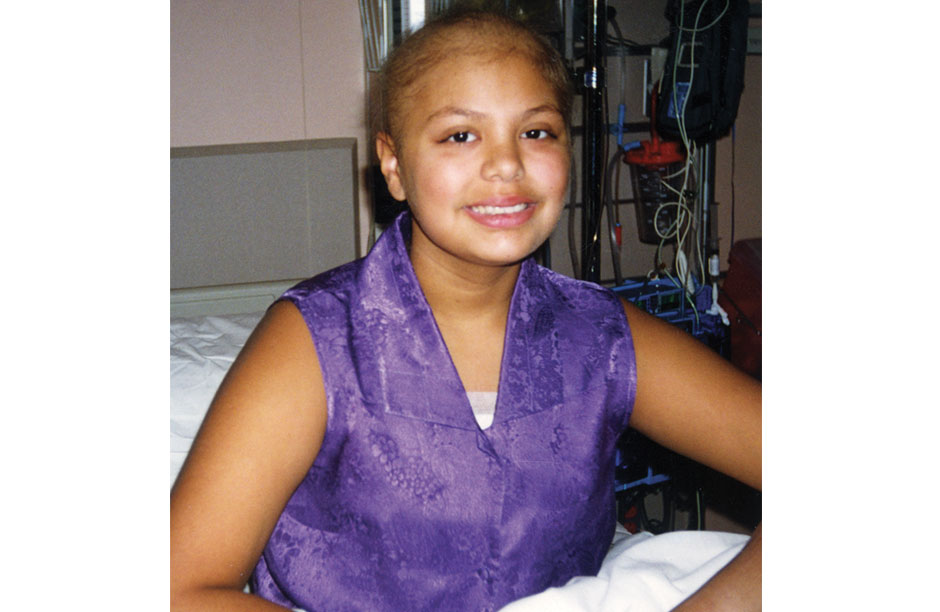 Reena feeling better and ready to go back home.
Reena feeling better and ready to go back home.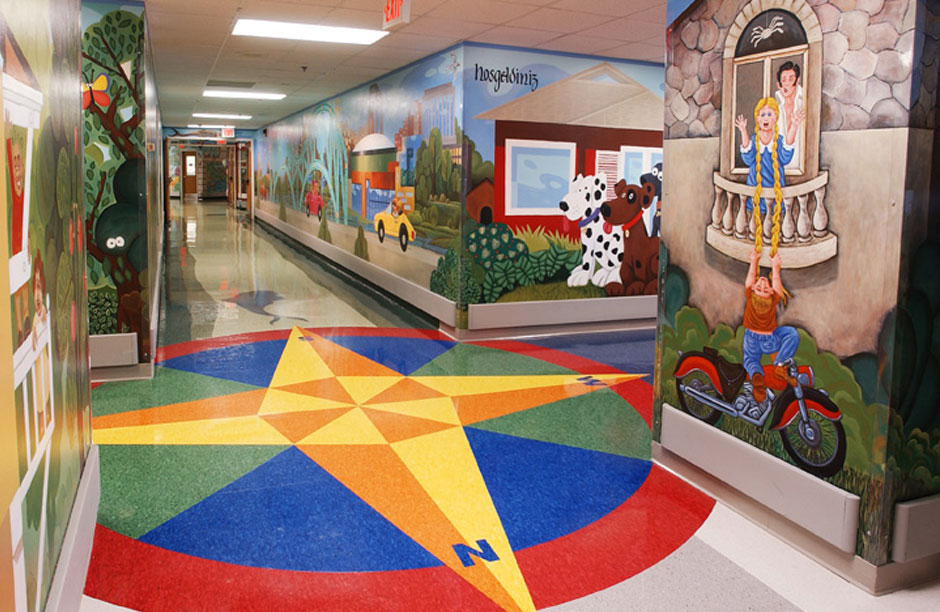 Colorful murals create a cheerful environment within the walls of St. Jude's Children's Hospital.
Colorful murals create a cheerful environment within the walls of St. Jude's Children's Hospital.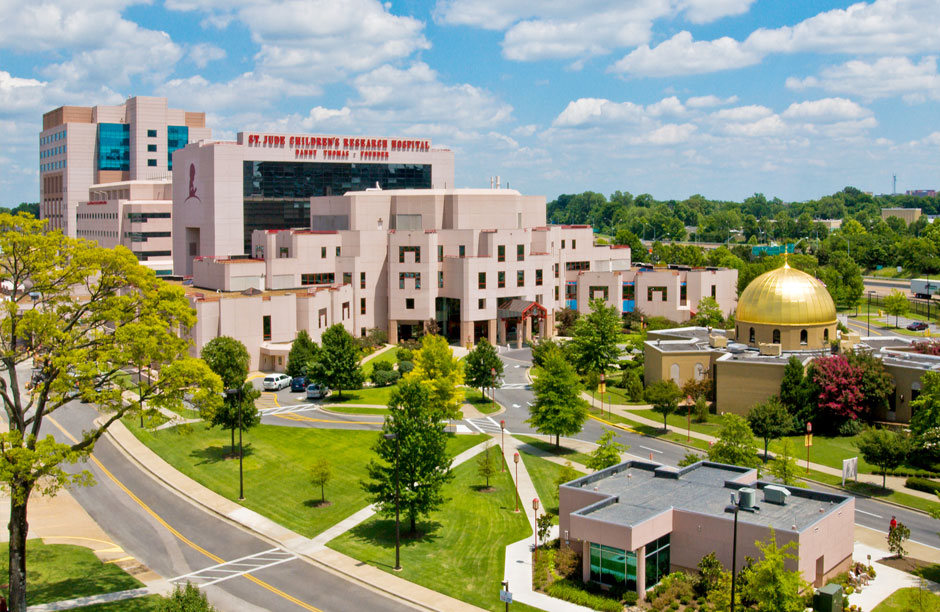 The sprawling campus of St. Jude's Children's Research Hospital in Memphis, Tennessee where no child is turned away and the most cutting edge treatments in pediatric cancer are made available to all.
The sprawling campus of St. Jude's Children's Research Hospital in Memphis, Tennessee where no child is turned away and the most cutting edge treatments in pediatric cancer are made available to all.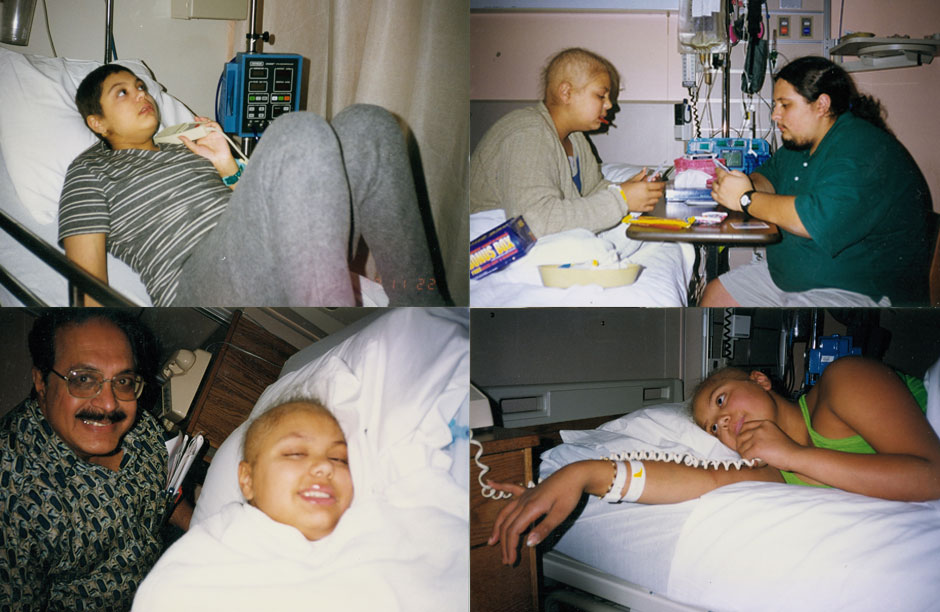 Reena at various stages throughout her bone marrow and chemotherapy treatments. Bottom left: Smiling with her dad. Top right: Playing cards with her brother.
Reena at various stages throughout her bone marrow and chemotherapy treatments. Bottom left: Smiling with her dad. Top right: Playing cards with her brother.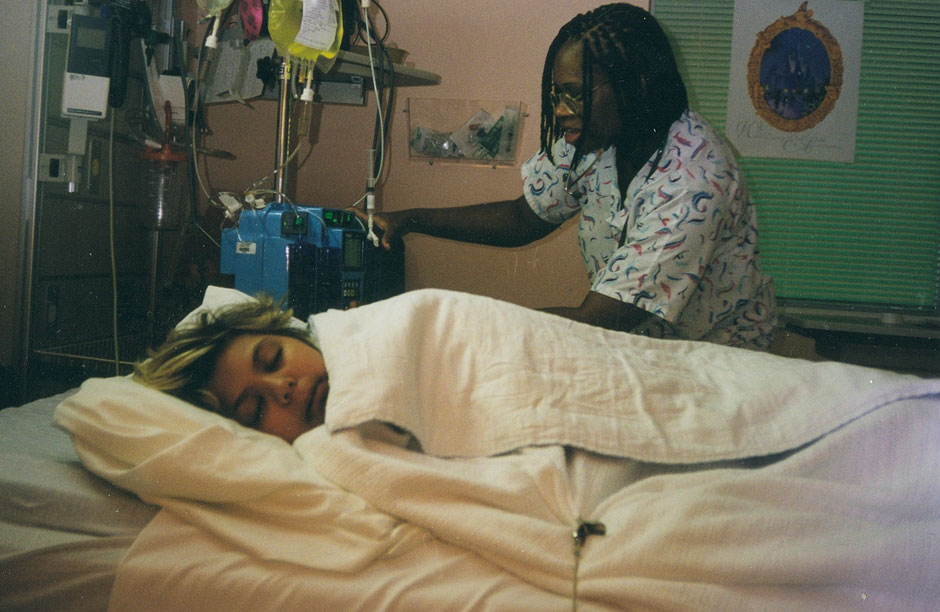 Reena begins treatment for Leukemia at St. Jude's Children's Research Hospital at the age of 13.
Reena begins treatment for Leukemia at St. Jude's Children's Research Hospital at the age of 13.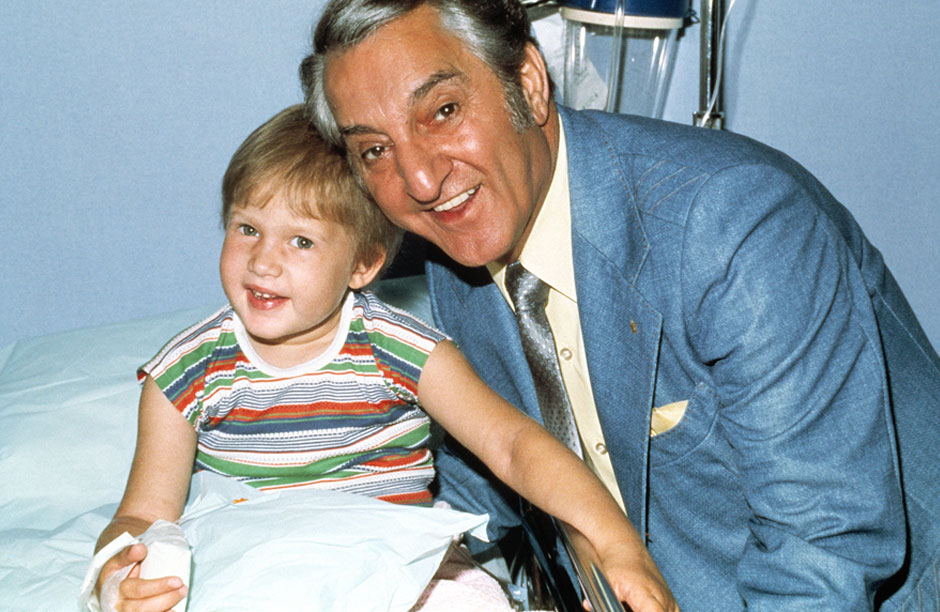 Danny Thomas, founder of St. Jude's Children's Research Hospital in Memphis Tennessee with a young patient in 1963.
Danny Thomas, founder of St. Jude's Children's Research Hospital in Memphis Tennessee with a young patient in 1963.
In the Dawn of Life
By Reena K. ShahAt the age of 12, my world was turned upside down. On February 14, 1997, I was diagnosed with chronic myelogenous leukemia. Thirteen years later, there is a lot of history to reflect upon and appreciate as I continue to move forward.
After my diagnosis, I was still a typical “tween”—a huge fan of the Spice Girls and already desperately in love with Leonardo DiCaprio—yet I was undeniably changed. Talking about my diagnosis with my friends was always awkward, and we all understood what having cancer could mean—a death sentence. Suddenly, I was thrown into a world of adult circumstances. I was faced with the reality that my treatment would make me unable to bear children, yet I was more troubled by the fact that the chemo would make my hair fall out.
After months of searching, the National Bone Marrow Registry finally found an unrelated donor for a bone marrow transplant. In June of 1997, my family and I made the long trek from Peoria, Illinois to Memphis, Tennessee where I would spend the summer and fall at St. Jude Children’s Research Hospital to receive treatment. After four days of high-dose chemotherapy and four days of total-body irradiation, my hair began to fall out in chunks and my body began to self-destruct. The nausea and vomiting and diarrhea began to set in. I received my bone marrow transplant on my tenth day of being an in-patient, July 4, 1997. After five months of build-up to that moment, it was startlingly anti-climatic. That night, I stood attached to my I.V. pole watching the fireworks outside my window. They were familiar and comforting. I reclaimed that day for my own independence.
I spent the next month isolated in my room. My immune system was depleted. I passed the days in my bed, as my fried body seemed to turn itself inside out. I was hungry, nauseated, and felt ripped apart. There were many days that I thought I couldn’t go on any longer. I felt exhausted and conquered by the side effects of the medication treating my disease. My hands and feet throbbed and turned purple. I hadn’t been able to eat, and I quickly lost 30 pounds. I will never forget one day when I turned to my father and asked him, “Why me?” My question was answered with yet another. He asked me, “Who of your friends would be strong enough to go through this?” I knew that I was stronger than I had given myself credit. My answer to his question is something that has guided me through the years.
Throughout my time at St. Jude and the years immediately following my treatment, as I made strides in my recovery, I lived through the conflicting experience of watching through the eyes of a survivor as many of my cherished fellow patients succumbed to their diseases or the side effects of their treatment. It was an especially difficult and sad period in my life, and recollection of it still chokes me up. They are frozen in time in my memory and photographs. Survival was a very strange feeling. I felt irrevocably different from my friends at school. The children with whom I had I felt a particular kinship that I had met at St. Jude were disappearing. Why did I live while they died?
At a young age, I learned what survivor’s remorse was all about. I continued to ask, “Why me?” Why had I sailed through comparatively effortlessly? In questions like these, one has to find answers for themselves, find your own meaning, otherwise you’ll dwell in despair. I’ve never been a religious person, but I adopted a certain spiritual perspective early on. I had to believe that I was alive for a reason, and that the reason would present itself to me as I pursued my purpose of trying to find it.
I had been given a second chance in life because of the kindness of strangers—my bone marrow donor; the dedicated team of researchers, doctors, and nurses at St. Jude; and a man who saw the world as larger than himself, Danny Thomas, the founder of the hospital. Because he believed that no child should die in the dawn of life, no child is ever turned away from St. Jude because his or her family cannot afford treatment. What a gift! How can you ever repay such a favor? By paying it forward, by doing your part to extend kindness to others in meaningful ways wherever you go. These people caused a ripple effect that propagates through me. My heart is with those who are the helpless, the ill, the marginalized, the so-called “lost causes”—the people for whom St. Jude is the patron saint.
Like Danny Thomas, I, too, want to leave a legacy of hope for a better future. I have spent the past two years working at The Pachamama Alliance, an international non-profit organization that is preserving the Earth’s tropical rainforests by empowering indigenous people who are its natural custodians and contributing to the creation of a new global vision of equity and sustainability for all. I remain particularly interested in pursuing a career in environmental health, seeking to raise awareness of, and hopefully to eliminate, the unregulated chemical factors released in our environment that are harmful to our health. Aside from pursuing heartfelt professional goals, I continue to give back to St. Jude. Every year, I return home to Peoria to participate in annual events that raise money to benefit other children who are battling cancer at St. Jude.
I wonder if Danny Thomas realized what a contribution to our future he was making when he founded St. Jude. After achieving international success as an entertainer, Thomas traveled the country to talk about his dream of giving back to the greater community. St. Jude is the result of Thomas sharing his vision and inspiring others to make this dream a reality—a world-renown hospital whose innovative research is a beacon to families everywhere. This hospital is not just where I got well; it’s where I became who I am. Having cancer transformed my relation to humanity, to all of us. I am alive to participate in this life, in this world. I am here to be a voice for those who could not tell their own stories. The resolve of Danny Thomas inspires me to stand up for what I believe and fight for it: a world without cancer.